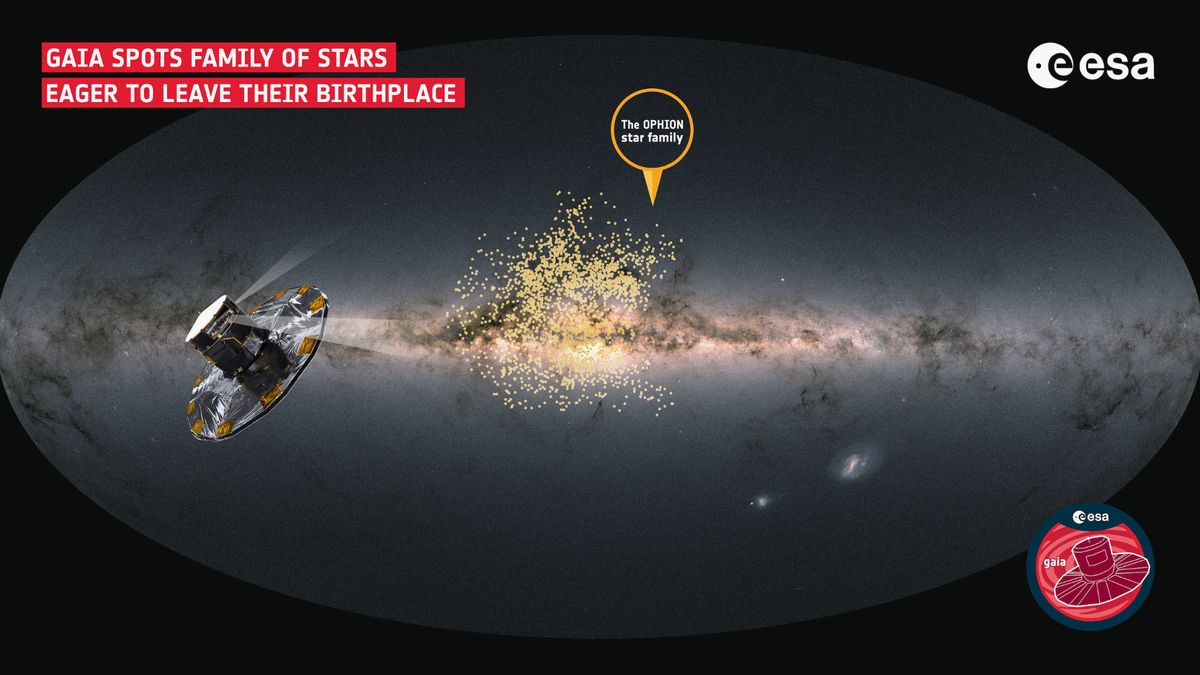Now Reading: Scientists Puzzled as Thousands of Stars Rapidly Flee Galactic Homes
-
01
Scientists Puzzled as Thousands of Stars Rapidly Flee Galactic Homes
Scientists Puzzled as Thousands of Stars Rapidly Flee Galactic Homes

Quick Summary
- Astronomers have discovered a star cluster, “Ophion,” in the constellation Ophiuchus, located 650 light-years away.
- Ophion’s approximately 1,000 stars are moving too fast to remain part of a cohesive family and will quickly scatter across the galaxy.
- The cluster is unusually young-around 20 million years old-and its rapid dispersal challenges conventional understanding of stellar clusters, which typically remain intact for hundreds of millions of years.
- Data was analyzed using the European Space Agency’s Gaia mission and a new model called Gaia Net, which can study large numbers of stars simultaneously.
- Ophion’s high velocity dispersion (differences in star speeds exceeding 20 km/s) may be linked to supernova shockwaves or gravitational disturbances from nearby regions reducing its ability to hold together.
- The discovery may transform methods for identifying star families and provides insights into broader stellar dynamics.
Indian Opinion Analysis
ophion offers an intriguing glimpse into stellar dynamics that challenge established scientific assumptions regarding star group longevity and dispersal mechanisms. from an Indian perspective, this discovery underscores the importance of investing in space research collaborations globally-India’s ISRO could leverage such findings for programs exploring deep-space phenomena. India’s growing ambitions within astronomy might align with similar data-gathering missions akin to ESA’s Gaia experiment in future decades.
The modeling techniques introduced by Gaia Net mark advances that could improve other astrophysical endeavors at all scales-from mapping clusters like Ophion to refining predictions on Milky Way behavior overall. Considering both science education efforts and public interest groups like planetariums or observatories within India, this breakthrough stands as a reminder of how discoveries beyond Earth can simultaneously inspire curiosity while expanding our understanding about vast cosmic interactions benefiting humanity long-term.


























